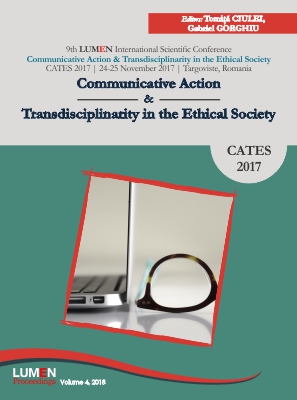Hegemonic Masculinity in Crisis: The Swede’s Disobedience in Philip Roth’s American pastoral
Hegemonic Masculinity in Crisis: The Swede’s Disobedience in Philip Roth’s American pastoral
Author(s): Cristina Roxana Neacsu
Subject(s): Essay|Book Review |Scientific Life
Published by: Editura Lumen, Asociatia Lumen
Keywords: Masculinity; fatherhood; hegemonic; paternal authority; male identity.
Summary/Abstract: Focusing on Philip Roth’s novel, American Pastoral, the article explores the case of the maincharacters’ families, with major focus on fathers, more precisely on Seymour Levov, also known asthe Swede and Lou Levov, Seymour’s father. Philip Roth is reputed as being an essentiallymasculine author in whose writings the fathers are not always depicted as having a constructiveinfluence on the male identity. In this novel are to be found two paternal figures whose concepts ochild education are set against each other. Caught between his father’s strict authority and Merry’sbrutal disavowal, the Swede is distressed by his incapacity to maintain the patriarchal legacy as ason and a father, too. By exploring the main character of this novel, this article inquires into howmen manage, or not, to reconcile their hegemonic and the patriarchal roles. The Swede’s denial ohis ethnic experience is a transgression of the paternal authority which is further evoked through awider crisis of masculinity and paternity in the novel. Philip Roth has often set the internaantagonisms – generally the conflict between traditional and temporal values – against thbackground of family. In this particular novel one finds that father’s disobedience can lead toconstructing hegemonic masculinity in crisis.
Book: Communicative Action & Transdisciplinarity in the Ethical Society
- Page Range: 192-200
- Page Count: 8
- Publication Year: 2017
- Language: English
- Content File-PDF

